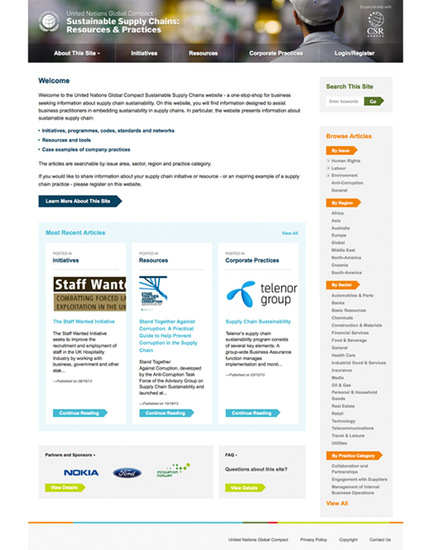Corporate supply chains are bigger and more complex than ever before. Open markets have enabled companies to source materials and outsource production to suppliers in developing and emerging economies. When done right, this can deliver significant benefits to companies in the form of reduced costs and enhanced profitability and shareholder value. It can also contribute to much needed economic and social development, resulting in higher standards of living for millions of people.
Done wrong, however, by not taking into consideration the environmental, social and governance (ESG) performance of suppliers, companies leave themselves open to significant operational and reputational risks. Impacts to people and environment can also be substantial and severe.
Public scrutiny and weak implementation of local ESG regulation has forced companies to address issues that have traditionally been outside of their core competencies and responsibilities. Regardless of a company’s overall commitment to corporate sustainability at headquarters, low standards of business conduct in their supply chain can seriously undermine and discredit any global efforts.
Obstacles to Improvement
Corporate buying practices can impact suppliers’ ability to improve their business conduct. Downward pressure on cost and efficiency can force suppliers to contravene their own ESG standards in order to meet buyers’ commercial requirements. Companies can combat this by using their purchasing power to help instill good ESG practices, particularly in small and medium-sized companies (SMEs).
Creating Long-Term Relationships for Long-Term Value
Successful supply chain managers must think beyond short-term financial considerations to build relationships that can deliver long-term value along the entire supply chain. This includes incorporating sustainability issues into the company’s sourcing and purchasing practices. Companies that incorporate ESG considerations into supply chain management can deliver a range of business benefits, including:
- Better anticipation and management of risks, as risk is spread out across different players
- Reduced operational risks such as disruption to supply, increased cost and lack of access to key raw materials
- “Informal” or “social” license to operate within communities, legal systems and governments that otherwise might be antagonistic
- Reduced costs and enhanced efficiency and productivity
- Improved working conditions, which can reduce turnover and improve quality and reliability
- Improved efficiency and profitability as a result of increased environmental responsibility
- Protection of corporate brand and values, and enhanced consumer confidence and loyalty
- Greater process and product innovation uncovered by empowered suppliers
- Potential increase in shareholder value as shown by examples from leading companies with good supply chain management


